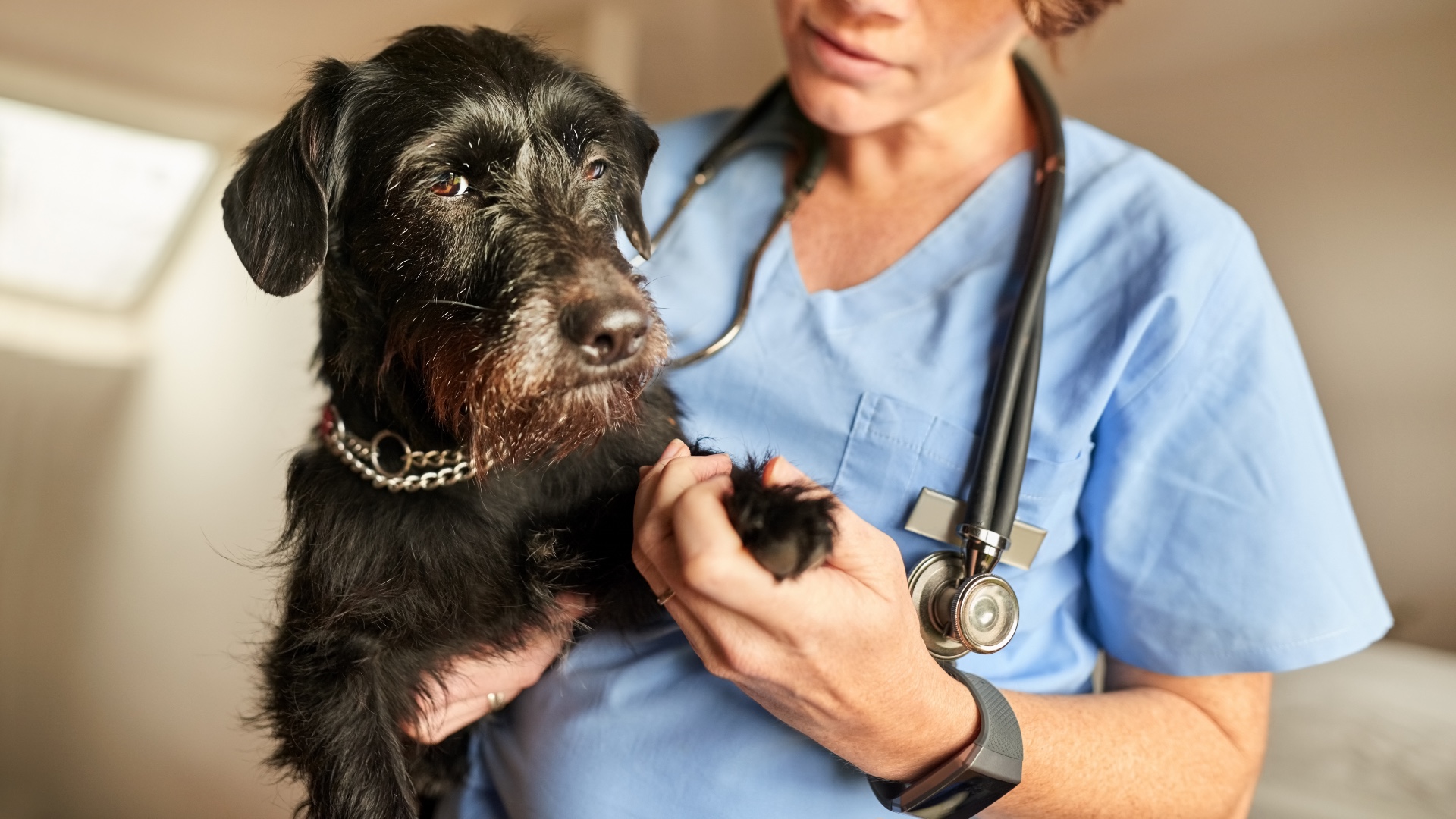Is your dog reactive? Trainer shares surprising reason why and how to fix it
If your dog is displaying reactive behaviors, here's one thing you'll want to check...

Disclaimer: Unless specifically stated, any expert comments quoted in this news piece have been taken directly from the video cited below.
Does your dog bark every time the doorbell rings? Do they lunge at other dogs when you're out on a walk? Are they prone to growling or nipping when family and friends come to visit?
If any of these behaviors sound familiar, you're not alone.
Many pet parents struggle with having a reactive pup and while there are lots of potential causes for reactivity in dogs, anxiety and incorrect socialization tend to be regarded as the most common.
Because of this, most of us look for tips on how to calm a reactive dog based on these particular root causes — and as it turns out, we could be missing a trick.
Julianna DeWillems, an expert trainer and founder of JW Dog Training & Behavior, says that one of the biggest causes of reactivity is subtle and easy to miss. Read on to find out what it is...
A post shared by JW Dog Training & Behavior Consulting (@jwdogtraining)
A photo posted by on
"One factor that can have a huge impact on a dog's reactivity is pain or discomfort," DeWillems explains in an Instagram video, which you can view above.
PetsRadar Newsletter
Get the best advice, tips and top tech for your beloved Pets
"I'm not talking about just obvious pain like limping, I mean more subtle underlying discomfort that isn't easily identified.
"Whether it's a GI issue, arthritis, tooth pain, skin issues...a dog who is uncomfortable can show an increase in barking and lunging behaviors."
DeWillems has worked with a lot of dogs that have displayed reactive or aggressive behavior and she says underlying pain has been found to be a very common cause.
"It’s usually subtle and easy to miss—which is the reason it can go untreated for so long," she explains.
"Many issues are written off as purely behavioral, or are attributed to a dog being a dog. Sometimes curiosity is the best step we can take when trying to help our dogs."
However, it's important to note that pain isn't always easy to find and it can often take multiple vet visits before it's diagnosed.
This obviously comes with immense privilege of being able to afford the investigation process," says De Willems.
"We understand this might not be an option for everyone, and in that case we urge you to keep in mind that misbehavior from your pet could very well be caused by pain and discomfort—so treat it with kindness and positive reinforcement, not punishment or anger."
If you suspect your dog's reactivity may be being driven by pain or discomfort, and you're in the financial position to do so, we highly recommend taking them to see a vet who will be able to conduct a thorough investigation.

Kathryn is a freelance writer who has been a member of the PetsRadar family since it launched in 2020. Highly experienced in her field, she's driven by a desire to provide pet parents with accurate, timely, and informative content that enables them to provide their fur friends with everything they need to thrive. Kathryn works closely with vets and trainers to ensure all articles offer the most up-to-date information across a range of pet-related fields, from insights into health and behavior issues to tips on products and training. When she’s not busy crafting the perfect sentence for her features, buying guides and news pieces, she can be found hanging out with her family (which includes one super sassy cat), drinking copious amounts of Jasmine tea and reading all the books.
